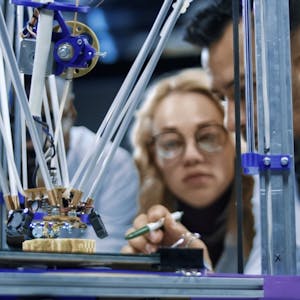DevOps for Network Automation (NetDevOps)
About this Course
This course will introduce students to various DevOps tools, such as Git and virtual environments for Python Development, and explain the concept of continuous integration. The topics of how different development methodologies are used in DevOps, such as the agile process. By the end of the course, students will have a broad understanding of DevOps and how they can relate to NetDevOps, which leads to improved efficiency and success in network operations. This course is primarily intended for network engineers, systems engineers, network architects, and managers interested in learning the fundamentals of network automation and NetDevOps. By the end of the course, you will be able to: - Define and differentiate between Waterfall and Agile software development methodologies - Describe how DevOps principles, tools, and pipelines can be applied to network operations - Explain the role of network automation development environments and associated technologies such as Python virtual environments, Vagrant, and Docker To be successful in this course, you should be proficient in fundamental network routing & switching technologies, understand the basics of Python programming (3-6 mos exp.) and have some familiarity with Linux.Created by: Cisco Learning and Certifications

Related Online Courses
This course continues your study of calculus by focusing on the applications of integration to vector valued functions, or vector fields. These are functions that assign vectors to points in space,... more
In the Rapid Prototyping and Tooling specialization, students learn how to make effective prototypes. Why is rapid prototyping important, and how does it facilitate the overall engineering design... more
This course specifically explores approaches and tools and how to apply them in public health settings. Students will learn how to critically analyse the power dynamics present between... more
Introduction to Advanced Vibrations starts with a review of single and double degree of freedom systems. After that, multiple degrees of freedom systems are introduced to explain the vibrations of... more
This course introduces you to event-based applications and teaches you how to use service orchestration and choreography to coordinate microservices. Using lectures and hands-on labs, you learn how... more








